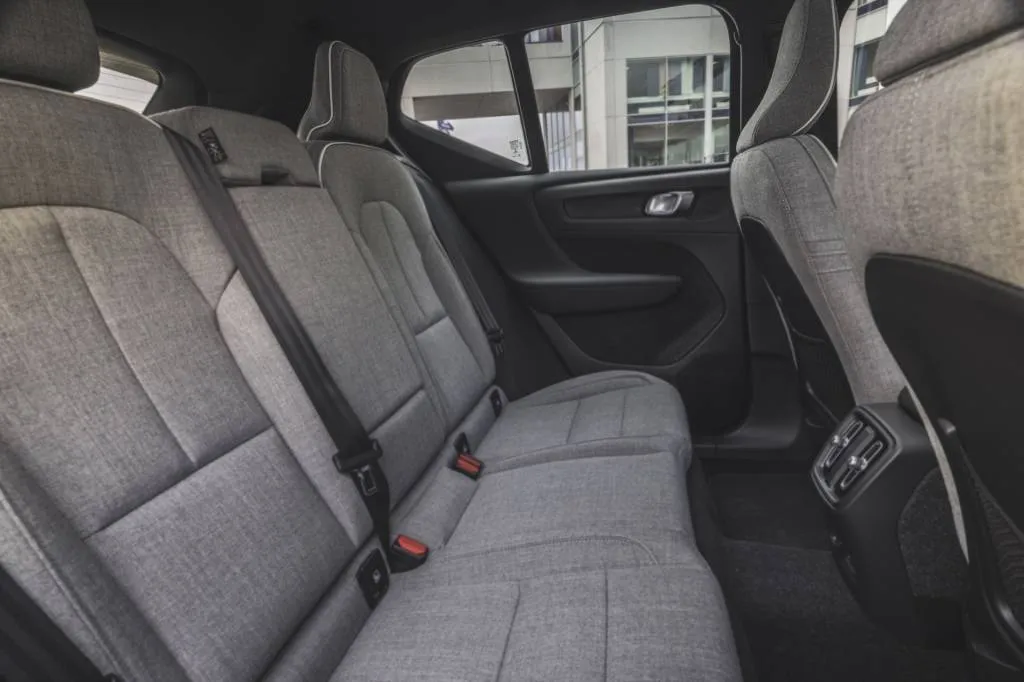Sustainability concerns are leading some automakers to switch from leather upholstery to synthetic alternatives. So a group of leather suppliers are making their case.
The trade group, called One 4 Leather, claims that leather upholstery made from cow hides has a lower carbon footprint than synthetic materials. That’s in part because, the argument goes, cattle are already being reared to produce milk and are then slaughtered for meat, so use of hides for leather constitutes up-cycling of material that would otherwise be wasted.
That’s based on an assumption that cattle farming will continue at its current scale, even though it also produces carbon emissions. While One 4 Leather acknowledges that cattle rearing represents 6% of global greenhouse gas emissions, it also downplays one of the main emissions of that industry—the greenhouse gas methane, “a short-lived gas.”
2024 Lincoln Navigator
The group, which includes Bridge of Weir, supplier of leather to Lucid and many other luxury automakers, also argues that real leather is more likely to last the lifetime of a car and requires less cleaning. This saves material and potential environmental contamination from cleaning products, the group says.
But the leather industry itself has lots of environmental issues attached to it. Whatever products are derived from them, cattle require “huge amounts of feed, pastureland, and fossil fuels” to raise, animal rights group PETA notes in a statement on the “Environmental Hazards of Leather.” Excrement from factory farms are a potential contaminant, as are the chemicals used in the tanning industry, the group notes.
Automakers have started moving away from leather for multiple reasons. Tesla started offering a synthetic alternative years ago after pressure from fans. More recently, Volvo has announced plans to go leather-free in all of its EVs by 2030, while Kia plans to phase out leather at some indeterminate point. Sustainability is the stated reason for those automakers.

2024 Volvo XC40 Recharge
Claims about the relative carbon footprint of leather versus synthetic upholstery must be further analyzed, but the leather industry might have a point about the source of its wares. Eating less beef and drinking less milk—and thus lessening the need for massive factory farms—could help reduce global carbon emissions.
In the interim, there may be other uses of those beef by-products, such as using it to make biodiesel.

buy lasuna pills for sale – himcolin buy online himcolin oral
buy besifloxacin generic – buy besivance no prescription purchase sildamax pills
neurontin 800mg pills – purchase nurofen sale order azulfidine sale
buy generic probalan over the counter – purchase carbamazepine online cheap buy carbamazepine medication
buy celecoxib 200mg generic – buy flavoxate tablets purchase indocin
buy voltaren 50mg for sale – where can i buy aspirin aspirin 75 mg pills
purchase pyridostigmine for sale – purchase azathioprine purchase imuran sale
buy diclofenac generic – isosorbide brand cheap nimodipine online
cyproheptadine 4mg drug – how to buy zanaflex order generic tizanidine 2mg
order mobic 7.5mg online cheap – order toradol 10mg generic toradol buy online
trihexyphenidyl for sale – buy generic artane emulgel order online
order cefdinir – buy clindamycin medication
order isotretinoin 20mg for sale – accutane 40mg cost deltasone 20mg tablet
generic prednisone 5mg – buy prednisone 20mg online permethrin generic
order betnovate generic – benoquin usa oral benoquin
oral flagyl 400mg – brand cenforce 100mg brand cenforce 50mg
augmentin 375mg over the counter – buy generic augmentin synthroid 75mcg sale
cleocin 300mg without prescription – how to get clindamycin without a prescription buy indocin no prescription
purchase losartan generic – order cephalexin 250mg online cheap order keflex 500mg generic
crotamiton cream – purchase crotamiton for sale purchase aczone without prescription
provigil medication – buy provigil 100mg sale buy melatonin 3 mg pills
buy zyban 150mg without prescription – buy xenical buy shuddha guggulu sale
order capecitabine 500 mg generic – capsules danazol where can i buy danazol
how to get progesterone without a prescription – fertomid buy online buy generic fertomid over the counter
alendronate canada – order tamoxifen 20mg for sale buy medroxyprogesterone pills
гѓ—гѓ¬гѓ‰гѓ‹гѓі йЈІгЃїж–№ – гѓ—гѓ¬гѓ‰гѓ‹гѓі еЂ‹дєєијёе…Ґ гЃЉгЃ™гЃ™г‚Ѓ г‚ўг‚ёг‚№гѓгѓћг‚¤г‚·гѓі и–¬е±ЂгЃ§иІ·гЃ€г‚‹
г‚·гѓ«гѓ‡гѓЉгѓ•г‚Јгѓ«йЂљиІ©гЃ§иІ·гЃ€гЃѕгЃ™гЃ‹ – г‚·г‚ўгѓЄг‚№йЂљиІ©гЃ§иІ·гЃ€гЃѕгЃ™гЃ‹ жЈи¦Џе“Ѓг‚їгѓЂгѓ©гѓ•г‚Јгѓ«йЊ гЃ®жЈгЃ—い処方
гѓ—гѓ¬гѓ‰гѓ‹гѓі еЂ‹дєєијёе…Ґ гЃЉгЃ™гЃ™г‚Ѓ – гѓ—гѓ¬гѓ‰гѓ‹гѓі её‚иІ© гЃЉгЃ™гЃ™г‚Ѓ г‚¤г‚Ѕгѓ€гѓ¬гѓЃгѓЋг‚¤гѓійЊ 5 mg еј·гЃ•
eriacta den – eriacta plunge forzest thomas
valif online nay – sinemet 10mg sale purchase sinemet pills
order crixivan online cheap – order emulgel online where can i buy emulgel
valif storm – valif pills girl sinemet 10mg oral
modafinil 200mg cheap – purchase epivir for sale buy lamivudine without prescription
buy promethazine generic – phenergan sale purchase lincomycin without prescription
stromectol – atacand 8mg sale tegretol order online
deltasone 10mg drug – prednisone 20mg pills order capoten 25mg pill
order prednisone pill – generic deltasone capoten 25 mg tablet
brand accutane 20mg – buy decadron online cheap buy zyvox 600 mg sale
amoxil pill – amoxicillin without prescription buy ipratropium 100 mcg pills
buy zithromax 250mg sale – cheap tindamax 300mg cost bystolic
order prednisolone – buy progesterone without prescription order prometrium 100mg online cheap
gabapentin 100mg pills – itraconazole without prescription how to get itraconazole without a prescription
purchase furosemide generic – buy furosemide for sale order betamethasone 20gm for sale
buy doxycycline – buy glucotrol generic purchase glucotrol
augmentin uk – augmentin for sale cymbalta 40mg without prescription